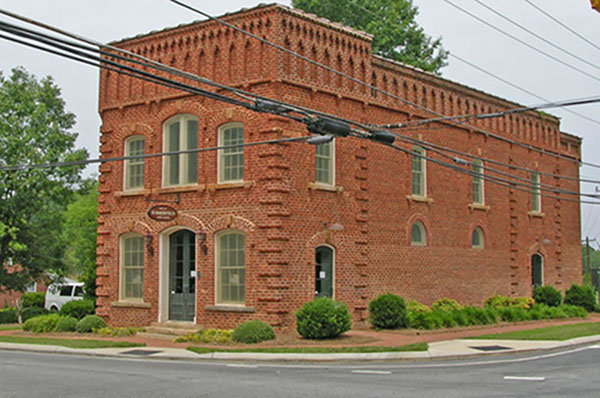The latest chapter in the ongoing battle between former Summerfield Town Councilmember Todd Rotruck and the Town of Summerfield unfolded on Monday, Feb. 11 in courtroom 3-G of the Guilford County Courthouse in Greensboro.
At the Guilford County Superior Court hearing regarding a rare action known as a “quo warrento” lawsuit, Rotruck’s attorney argued that Rotruck should be allowed to keep the Town Council seat he was elected to until his appeal is heard, while the attorney representing Summerfield argued that Rotruck should remain off the council.
Forsyth County Superior Court Judge David Hall heard the arguments for about an hour and 15 minutes on Monday but didn’t issue a ruling as to whether the matter should go to trial, be dismissed or be stayed. That ruling is likely to come on Tuesday, Feb. 12.
If the case is allowed to proceed and Rotruck wins the suit, he could unseat Summerfield Town Councilmember Dianne Laughlin, who was appointed in October to fill the vacant seat left by his absence Rotruck was removed from the Town Council in April 2018 after the Guilford County Board of Elections found in favor of, Janelle Robinson, who had filed a complaint claiming that Rotruck didn’t live in Summerfield and therefore wasn’t eligible to vote in the town.
Robinson attended the Feb. 11 court hearing.
While the Guilford County Board of Elections never issued any decision regarding Rotruck’s seat on the Summerfield Town Council, North Carolina law state’s that failing to live in a city or town means “ipso, facto” that a person cannot serve on that town or city council.
Gray Wilson, with the Winston-Salem firm of Nelson Mullins Riley & Scarborough, was hired by Summerfield to defend Laughlin – who is named as the defendant for procedural reasons. Rotruck’s actual complaint is with the way Summerfield officials handled matters before Laughlin was named to the council.
Marsh Prause, an attorney with the Winston-Salem firm of Allman Spry Davis Leggett & Crumpler, represented Rotruck, as he has in several previous court battles in the long-running dispute.
At the hearing, Prause argued, among other things, that the “ipso facto” rule used to justify Rotruck’s removal was implemented improperly and also that a town administrator who removed Rotruck from his seat had no authority to do so.
Prause said after the hearing that he was very pleased that Judge Hall seemed to be fully engaged in the issues and also that he clearly appreciated the time-sensitive nature and importance of the action – since the public interest was at stake.
Rotruck said it’s somewhat amazing to see the amount of effort that Summerfield is putting into keeping him off the council.
“I can tell you that was a very expensive brief,” Rotruck said of Wilson’s written arguments.
Though Wilson only argued for a short time on Monday, Rotruck pointed out that his brief was very thick.
According to Rotruck, Summerfield doesn’t want the case to be heard in court since this trial, unlike others, could cover a great deal of territory.
“Every court case before has been very limited,” he said. “It could only deal with the decisions made by the Board of Elections, but this opens up the floodgates,” he said. “That is their big concern – Summerfield has a lot of skeletons in its closet.”
He also said he thought the case has implications far and wide.
“It’s not just about me,” he said. “It’s about the people’s will. The people elected me to that seat and I am entitled to due process.”


Scott did Rotruck’s lawyer not state that Rotruck is still not living in Summerfield? Should that not have been mentioned in your article? And was Janelle the only person from Summerfield that attended the Trial? Had she been subpoenaed?